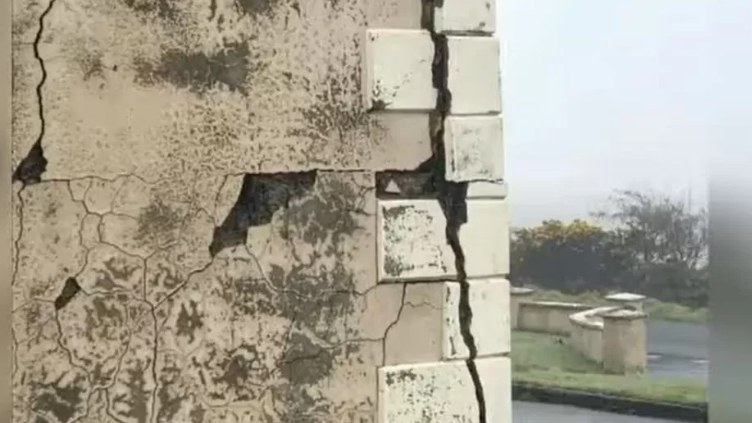Irish government 'will not abandon' plans for concrete block levy

The levy is being introduced to help cover the cost of the mica repair scheme
At a glance
A 10% levy on concrete blocks is due to come into effect in April 2023
Irish government says that will help to compensate people whose homes have been affected by mica
Critics call it "grossly unfair" and say it will increase house prices
- Published
The Irish government will push ahead with its plan to introduce a controversial levy on concrete blocks, Tánaiste (Irish Deputy Prime Minister) Leo Varadkar has said.
He said the measure would help to pay the repair bill for the thousands of Irish homes caught up in the mica scandal.
It was announced as part of the Irish budget on Tuesday.
Critics have said the 10% levy will see house prices rise by more than €3,000 (£2,640) , Irish national broadcaster RTÉ reports.
Mr Varadkar said the cost of repairing homes corroded by the minerals mica and pyrite would run into billions of euros.
He said the taxpayer alone cannot foot the huge repair bill.
"We believe that the cost should fall, in part at least, on the industry, so no matter what we do when you decide to socialise the cost of something, the cost has to be borne in the round by society," he said.
Mica and pyrite are minerals that absorb water - that causes buildings to disintegrate and plastering to crack.
Up to 5,700 houses have been affected across counties Donegal and Mayo.

Leo Varadkar says taxpayers alone cannot foot the mica repair bill
Speaking in the Dáil (the lower house of Irish Parliament), the Social Democrats' housing spokesperson Cian O'Callaghan asked: "On what planet does [rising house prices] make sense?"
Mr O'Callaghan described the government's housing record as a "disaster and litany of failure".
Fianna Fáil politician Cathal Crowe said it "was not fair to levy each person" trying to undertake a building project.
His party colleague Willie O'Dea said the government needed to "think very carefully about the consequences of this".
The levy is due to come into effect in April 2023.
A compensation scheme for homeowners affected by crumbling blocks was announced last year after years of campaigning.
In 2016 an expert panel was set up to investigate problems with homes affected by mica and pyrite .
In 2019 the Irish government approved a €20m (£17.2m) repair scheme.
But many homeowners said that scheme was not fit for purpose.